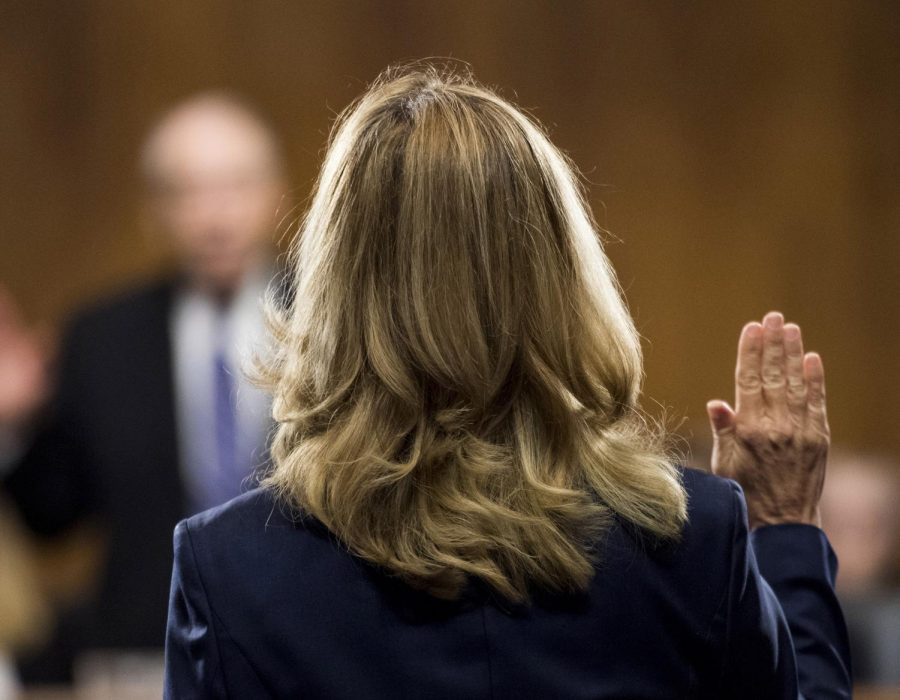Assault doesn’t need to be recounted to be valid
Opinion columnist Albie Nicol discusses the recent Kavanaugh confirmation and how survivors should be believed.
Oct 11, 2018
There’s nothing anyone could say or do to make what happened last weekend acceptable. If you don’t know what I am referencing, check Facebook, Twitter and Instagram and you’ll see that most of the headlines are still predominantly about the most recently appointed Supreme Court Justice, Brett Kavanaugh.
For those who don’t know, here’s a short recap: Brett Kavanaugh was accused of sexual assault in a confidential letter written by Dr. Christine Blasey Ford and sent to Senator Dianne Feinstein of California who was a ranking member of the Judiciary Committee. This was back in late July.
Since then, the letter was leaked without Ford’s name (or her consent), and in the interest of preserving the validity of the letter and showing the nation Kavanaugh’s true character, Ford made the courageous decision to come forward and publicly claim the letter as her own. Since coming forward, Ford has faced reporters invading her privacy, inaccuracies being spread and critics on both sides of the political aisle.
She testified at Kavanaugh’s confirmation hearing on Thursday, Sept. 27 and answered questions posed by the committee and a prosecutor with her legal team on either side. She gave an emotional testimony and was forced to re-live the trauma she underwent that night. She is truly a hero for all survivors.
In the end, the Senate voted 51-49 to continue with Kavanaugh’s confirmation as Supreme Court Justice, and then was confirmed into the Supreme Court by a 50-48 vote in favor of him. Kavanaugh was sworn into the Supreme Court for his lifetime appointment later that evening.
Sadly, the United States Justice System and government in general frequently haven’t been on the sexual assault survivor’s side and tend to define consent in whatever way works best for their political agenda.
In light of that, it’s time to go back to the basics and what consent is and isn’t in the political age we are currently living in.
By confirming Justice Clarence Thomas in 1991, the United States sent a message to its citizens by not viewing Anita Hill’s harassment allegations as valid and truthful.
In Thomas’ confirmation hearing, Hill had to recount painful details and moments from the sexual harassment she experienced multiple times for the Committee to believe her answers.
In reality, you have no obligation to recount the harassment or assault you experienced for it to be valid and truthful. Your story is yours, you owe it to no one, and it is valid and truthful just by being yours.
By confirming Kavanaugh in 2018, the United States sent another powerful message to its citizens: despite the low rates of reporting false sexual assault accusations, despite having everything to lose, survivors can’t just be believed.
The government is wrong. Survivors can and will be believed. Your experience is valid and important. You are valued no matter what anyone else says.
We remember survivors who have been brave enough to speak out against their perpetrators: Anita Hill speaking out against then nominee for Supreme Court Justice Clarence Thomas, former House Aide Kari Tupper for speaking out against then Washington Senator Brock Adams and Christine Blasey Ford, Julie Swetnick and Deborah Ramirez for speaking out against Supreme Court Justice Kavanaugh, and all other survivors who have spoken out against their assailants, in addition to those who have chosen not to.








